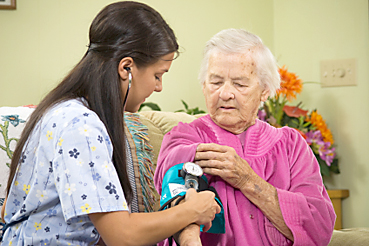
Nearly one in five Medicare patients fall prey to medically related injuries unrelated to their underlying disease or condition, according to new research.
In the May 27 issue of Injury Prevention online, Towson University researcher Mary Carter notes that the adverse events included wrong medication, allergic reactions to medications, and receiving treatments leading to complications over and above an existing medical problem. A lot of effort has been spent in hospitals trying to understand medical injury, but not as much in nursing homes and outpatient settings such as doctors’ offices, surgery centers and emergency rooms, noted Carter, the school’s gerontology program director.
“We have to focus at least as much on outpatient care as we do on inpatient care,” she said.
Her findings were based on examination of care data from more than 12,500 Medicare patients who made claims between 1998 and 2005. Their average age was 76. She said her research also found that each additional month of age was associated with a 1% increase in the risk of a medical injury.
The investigation echoes much of what the Department of Health and Human Services OIG reported last March when it found that about 22% of Medicare beneficiaries experienced an adverse event during a post-hospitalization skilled nursing facility stay in fiscal year 2011. The OIG report also noted that nearly 60% of these events were preventable, and overall during 2011, hospitalizations due to adverse post-acute events in SNFs cost the Medicare program $208 million.
The OIG called upon The Agency for Healthcare Research & Quality to collaborate with the Centers for Medicare & Medicaid Services to compile a list of potentially reportable events for nursing homes.




